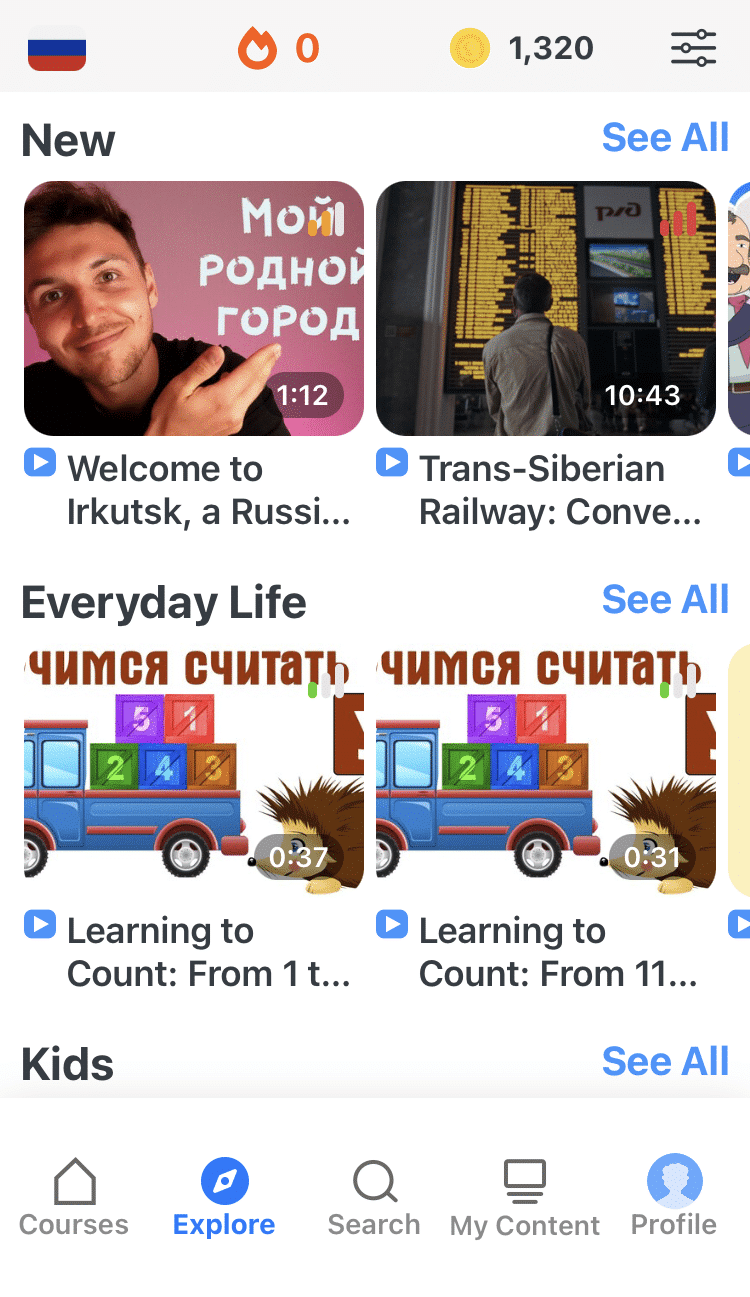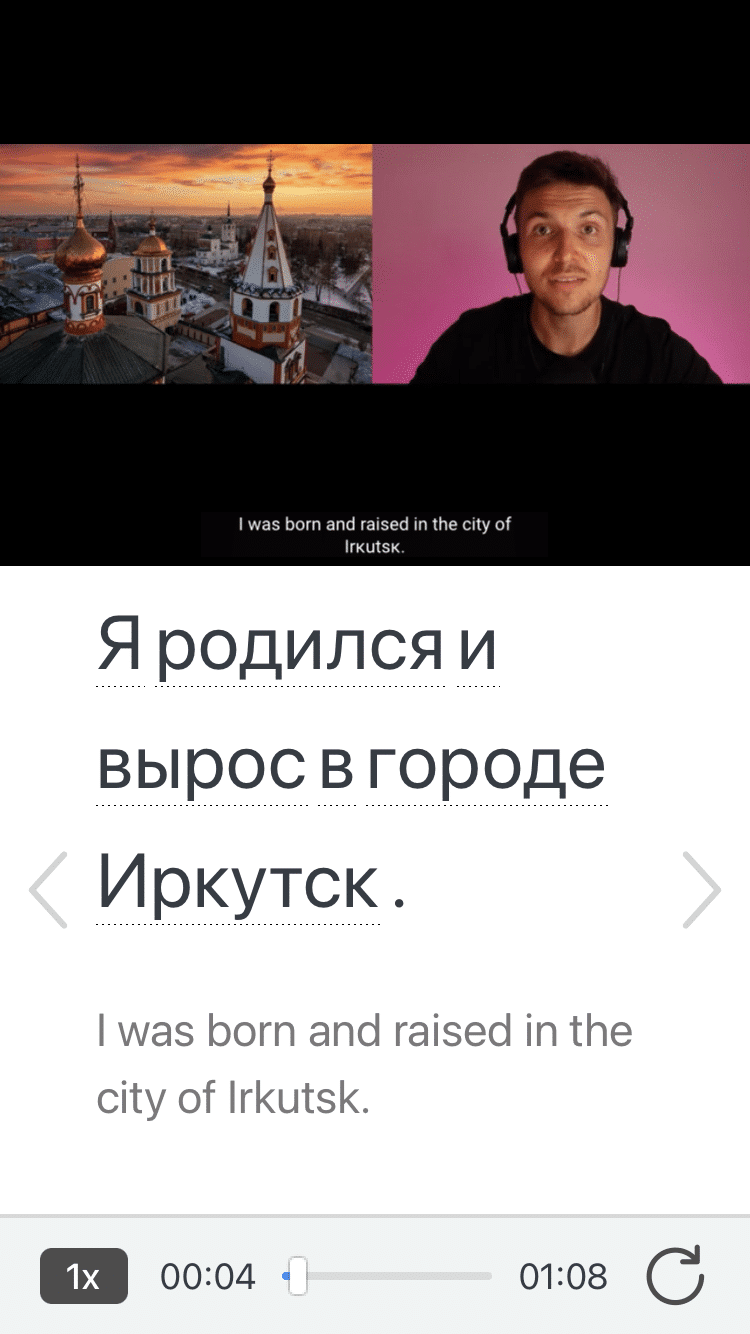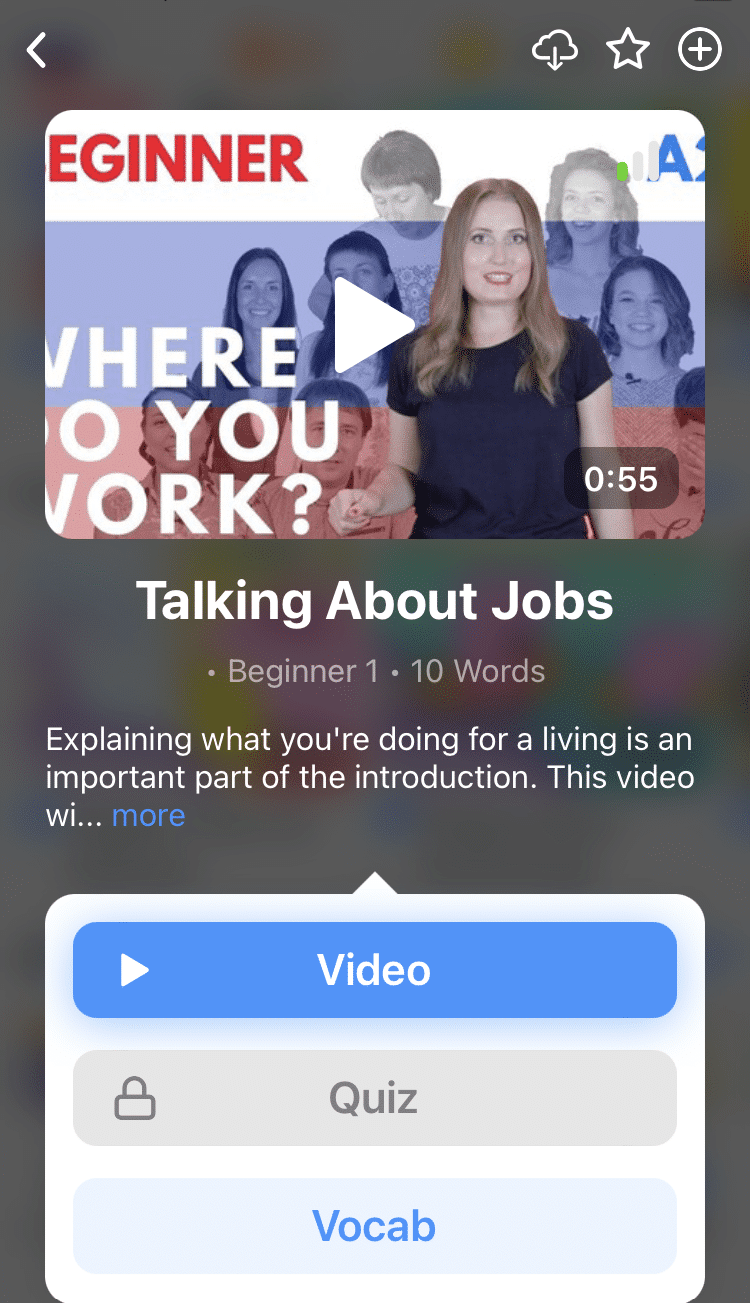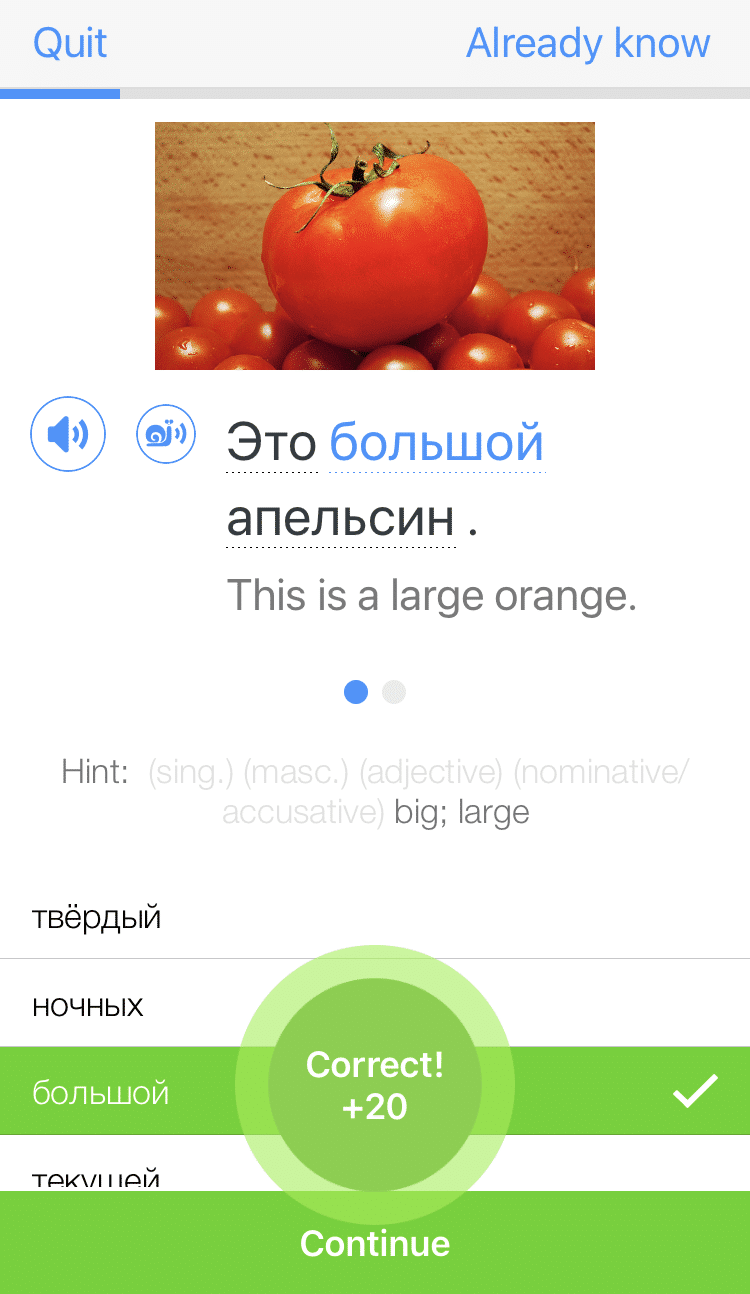
8 Famous Russian Singers for Learners
Have you gotten a taste of a few popular Russian songs and now are hungry for more?
There’s a whole world of contemporary Russian music to discover, and today we’re looking at eight of the most important singers learners should know.
Contents
- Top 8 Most Popular Russian Singers
- How to Use Popular Music to Improve Your Russian
- And One More Thing...
Download: This blog post is available as a convenient and portable PDF that you can take anywhere. Click here to get a copy. (Download)
Top 8 Most Popular Russian Singers
1. Влади́мир Высо́цкий (Vladimir Vysotsky)
Vysotsky isn’t just a famous singer—he’s a legend. As one of my friends put it, “Он классика, поэт!“ (He’s a classic, a poet!)
In his musical career, which spanned the 60s and 70s, he wrote over 700 songs and poems, many of them critical of the Communist system and the hardships of life in the Soviet Union. He also sang in a unique, rough style—often drawing out consonants, rather than vowels—and used street language, making him a decidedly “anti-establishment” singer.
To this day, he’s a cultural icon. Russians who play the guitar often learn his songs as a matter of course. Singers continue to emulate him, and you can find collections of his work in the poetry section of Russian bookstores.
Obviously, you’ll have a lot of Vystosky songs to choose from, but you can start with a pair that represents two sides of Vysotsky’s work: the serious and the humorous. A more serious classic is “Песня о друге” (Song About a Friend), about true—and false—friendship. On the lighter side, you might enjoy “Утренняя гимнастика” (Morning Exercise), a funny song narrating an exercise routine.
2. А́лла Пугачёва (Alla Pugacheva)
Another iconic name in Russian music is Alla Pugacheva, who also got her start in the 1960s. Since then, she’s sold record numbers of albums and has won several awards.
Like Vysotsky, Alla Pugacheva is an absolute must-know. Her private life is a frequent subject of gossip and jokes in Russia, so even if you don’t know her music, you can’t not know her name.
Still, don’t miss her music! You can hear Alla’s alluring mezzo-soprano on the soundtrack of the film “Ирония судьбы, или С лёгким паром!” (The Irony of Fate, or Enjoy Your Bath!), which is a staple at New Year’s. I personally recommend the song “Мне Нравится” (I Like…), a gorgeous романс (musical romance) based on a poem by Marina Tsvetaeva.
Another song you might check out is “Миллион алых роз” (Million Roses). This is a навязчивая мелодия (earworm, catchy song) if I ever heard one. Cultural tip: The lyrics reference the story of Georgian artist Niko Pirosmani, who fell hopelessly in love with a French actress and filled the square in front of her hotel with roses.
3. Филипп Киркоров (Philipp Kirkorov)
Philipp Kirkorov is well known for his 11-year marriage to Alla Pugacheva, which makes him the subject of gossip and jokes. Still, over and above the fame in connection to his ex-wife, Kirkorov is a pop star and public figure in his own right, complete with a “bad boy” persona and frequent controversies.
Basically, he’s a face you’ll come to recognize on Russian tabloid covers.
If you’re not sure where to start with Philipp Kirkorov, try “Снег” (Snow), a romantic and emotional song from 2011. Then there’s the quirky “Индиго” (Indigo) from 2015, which comes with a truly bizarre music video.
4. Виктор Цой (Viktor Tsoi)
In case you thought Russian music was all about pop, I must introduce you to rock icon Viktor Tsoi. He was the lead singer and songwriter of the revolutionary post-punk band Кино (Kino, or Cinema), which rose to popularity in the 1980s.
Tragically, Viktor Tsoi died in a car accident at the age of 28—but his music and persona continue to influence Russian rock. Walls of graffiti are devoted to remembering Tsoi, and he lives on in the slogan “Цой жив!” (“Tsoi lives!”). His music is still popular for new generations of musicians, and you might hear it played in the streets of a Russian city.
To get started, check out his hits “Кукушка” (The Cuckoo)—my personal obsession—and “Хочу перемен” (I Want Change).
5. Земфира (Zemfira)
One super-cool contemporary artist influenced by Viktor Tsoi’s legacy is Russian female rocker Zemfira. She’s a bit of a rarity in a musical scene dominated by female pop singers, but that just makes her all the more interesting—and the more worthy of your notice.
Besides Tsoi and his band Kino, Zemfira was also influenced by Nautilus Pompilius, Aquarium and Radiohead. She was active in music from childhood, but her musical career really took off in the late 1990s, especially after the song “СПИД” (AIDS) in 1999. As you might imagine from the title, this was a controversial song—and therefore worth knowing about. The chorus is dark, but easy to learn and remember:
А у тебя СПИД, и значит, мы умрём. (But you have AIDS, and that means we’re going to die.)
A more recent song from Zemfira is “Хочешь?” (Do You Want To?) which is catchy, popular and fairly simple in terms of vocabulary, especially for intermediate learners.
6. Дима Била́н (Dima Bilan)
Dima Bilan is known globally for his performances in Eurovision—winning second place for Russia in 2006 with “Never Let You Go,” then finally winning with “Believe” in 2008. He sings in Russian, English and even Spanish.
Actually, he’s known as the “Russian Iglesias,” because, well… check out his videos and you’ll see why!
Besides singing, Dima appeared on the big screen as the male lead in the 2016 film “Герой” (The Heritage of Love), a historical romance set during the Russian Revolution. He’s also a coach/judge on “The Voice Kids” in Russia.
It’s worth checking out his Eurovision songs—for example, “Believe”—to get to know his style, although those songs are in English. To hear him singing in Russian, try his light romantic hit “На берегу неба” (Between the Sky and Heaven) or the more recent “В твоей голове” (In Your Head).
7. Ню́ша (Nyusha)
If Dima Bilan is the “Russian Iglesias”… then Nyusha, in my opinion, is the Russian Britney Spears.
In many ways Nyusha is a typical female pop star, relying on sex appeal, catchy tunes and music videos packed with scintillating dance moves. That said, her songs are catchy… and very popular. Nyusha has eight number-one singles under her belt, which is the highest number in Russia.
Like most pop singers, her songs tend to have simple, repetitive choruses that are great for learners. For example, one of her more recent hits, “Где ты, там я” (Where You Are, There Am I) has a very simple chorus that even beginners could sing along to:
Пускай всегда, где ты, там я (Let me always be where you are)
Твоя любовь — моя весна (Your love is my spring)
Another song to check out is “Выбирать чудо” (Choosing a Miracle), one of her biggest hits so far—and one of her most popular YouTube videos.
8. Сергей Лазарев (Sergey Lazarev)
Another Eurovision veteran, Sergey Lazarev represented Russia in the 2016 competition in Stockholm with the song “You Are the Only One.” Long before Eurovision, however, Lazarev had been successful as a member of the group Smash!! and also enjoyed a thriving solo career.
A lot of his songs are in English, but he has plenty of Russian hits, including the super-catchy “Это всё она” (She’s All That)—don’t miss the music video!—and “7 цифр” (7 Wonders).
Just for fun, you might also want to check out his appearance on the TV show “Призрак оперы” (“Phantom of the Opera”—a musical competition), singing the Russian romance “Дорогой длинною” (Those Were the Days).
How to Use Popular Music to Improve Your Russian
Listen on repeat, and try to understand a little more each time
Choose a song you like and listen on repeat until you could recognize it anywhere. Don’t worry about studying the lyrics yet—but do challenge yourself to pick up at least one or two more phrases each time you listen. Doing this will help you learn to recognize a word the moment you hear it, which is very useful for conversation.
Just getting started in Russian? No sweat—listening on repeat will get you used to hearing the language in an authentic context, and it will acquaint you with the sounds, rhythms and tones used by native speakers.
Dig deeper into the lyrics
After you’re pretty familiar with the song already, check out the lyrics online. Are there any new words? Mystifying phrases? Unconventional uses of grammar? Take note of these things and look them up in a Russian-English dictionary (or, if you’re at a higher level, a Russian-Russian dictionary).
For some things, like slang and cultural references, you might have to consult with a teacher, tutor or native speaker, or use a program like FluentU, which has learning tools to support your exploration of Russian media.
FluentU takes authentic videos—like music videos, movie trailers, news and inspiring talks—and turns them into personalized language learning lessons.
You can try FluentU for free for 2 weeks. Check out the website or download the iOS app or Android app.
P.S. Click here to take advantage of our current sale! (Expires at the end of this month.)
Sing along
Now you should be armed with a whole arsenal of new words, structures and expressions—right? So what do you do with them? Practice, of course!
If the words don’t come up in conversation, one way to get practice is simply to sing the song. (Even if you only dare do it in the shower!) You can sing along with the recording, or—if you play an instrument—it’s even better to memorize the song and then learn to accompany yourself. This way, the song really becomes part of you. (And it’s a great skill to show off to your friends.)
So there are eight Russian singers for you to add to your pop culture checklist—and that’s only a start. There are plenty more names in a variety of genres, both classic and modern.
Download: This blog post is available as a convenient and portable PDF that you can take anywhere. Click here to get a copy. (Download)
And One More Thing...
If you love learning Russian and want to immerse yourself with authentic materials from Russia, then I should also tell you more about FluentU.
FluentU naturally and gradually eases you into learning the Russian language and culture. You'll learn real Russian as it's spoken by real Russian people!
FluentU has a very broad range of contemporary videos. Just a quick look will give you an idea of the variety of Russian-language content available on FluentU:

FluentU makes these native Russian videos approachable through interactive transcripts. Tap on any word to look it up instantly.

Access a complete interactive transcript of every video under the Dialogue tab. Easily review words and phrases with audio under Vocab.

All definitions have multiple examples, and they're written for Russian learners like you. Tap to add words you'd like to review to a vocab list.
And FluentU has a learn mode which turns every video into a language learning lesson. You can always swipe left or right to see more examples.

The best part? FluentU keeps track of your vocabulary, and gives you extra practice with difficult words. It'll even remind you when it’s time to review what you’ve learned. You'll have a 100% personalized experience.
Start using the FluentU website on your computer or tablet or, better yet, download the FluentU app from the iTunes or Google Play store. Click here to take advantage of our current sale! (Expires at the end of this month.)



